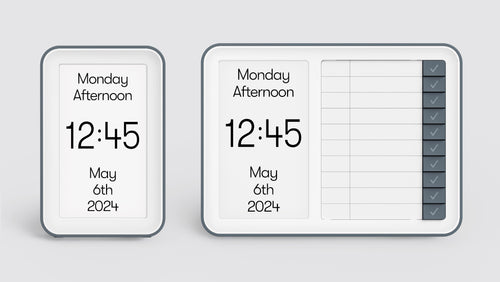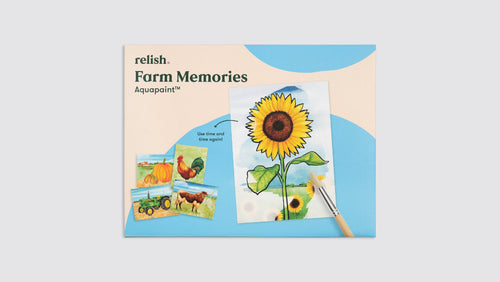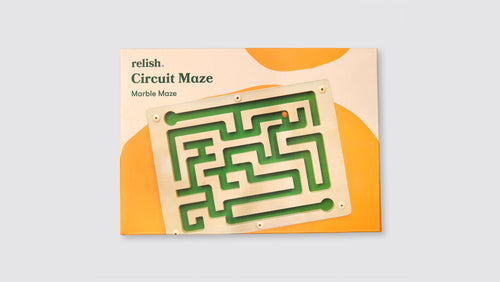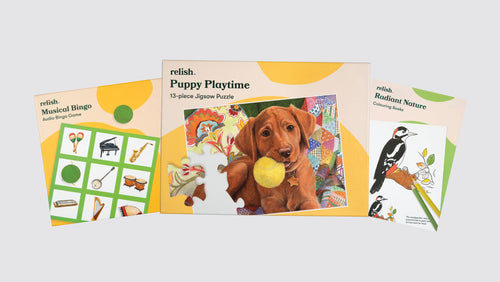Music has long been identified as a soothing medium and experience that is calming for people or even animals. Music can trigger a multitude of emotions. How many times has listening to a song transported you back to a long-ago time and place, from which you can pinpoint very specific details, along with the emotions you were feeling at that time? It is a common phenomenon when hearing a song from one’s youth, you immediately remember the lyrics without trying or even being fully conscious of it.
For this reason and more, music has been adopted as a therapy for people living with dementia or other memory loss conditions, as it has the ability to trigger emotions and experiences with very little planning. While it can take many forms — from listening to playing instruments to singing along with a track or in a group — it is universal in its ability to engage listeners and players and strike emotional chords that transport you back to happier times with friends and family.Music for the Masses
In memory care facilities and care homes, there are many structured group activities to bring people living with dementia and Alzheimer’s together; and one of the mainstays of these activities is centered around music. For example, “dementia choirs” have become popular, where groups of people with early to mid-stage dementia are brought together to sing classic songs or standards together. The magic of these choirs is that each person can relish in the joy and moment of being part of a larger group or “voice” while staying focused on one sole objective—singing.
As a person’s dementia advances, music’s soothing qualities can help reduce agitation or anxiety during certain tasks or events and can even make transitions easier. For example, as Joy Allen, Ph.D., MT-BC and Chair of the Music Therapy department at the Berklee School of Music in Boston, describes: “So if you need a person to walk, by singing something familiar like ‘When the Saint[s] Go Marching In,’ the focus is on the reward of the song instead of the discomfort of what they’re doing.” She elaborates: “We know that in dementia, the brain is damaged, but the part that responds to music is one of the last that seems to go. . .With singing there’s the predictability of rhythm that is soothing.”
Other group activities that incorporate the therapeutic benefits of music can be drumming circles with percussive instruments, such as egg shakers. As Allen explains: “That active rhythm provides predictability [. . .] It’s a time sequence.]”. Or just sitting in an open area, such as a recreation room in a care facility, and listening to music can also be a calming social activity, eliciting feelings of shared enjoyment and connection.
Musical Activities & Gadgets for Groups
Relish has created many activities for appreciating music in a group setting, or individually for the person who is reluctant to enter a group setting. Musical Interlude uses familiar songs to get people living with dementia in the mid-to-late stages engaged and is likely to lift their mood and spark memories. All you need to do is set up a personal music player [whether it’s a CD, cassette or record player, MP3 device with a pre-arranged playlist, or a tablet or computer for streaming from the internet]; poll the person/group what they would like to listen to; and then encourage them to tell stories or share memories that come to mind, or merely sing along or dance.
Another musical activity that Relish recommends to play with a group is Name That Tune, intended for those in the earlier stages of dementia. The objective of the game is to have the players pay attention and stay alert while listening to a song so they can take a guess. Again, all you need is a personal music player; start playing the beginning of a song; and have people guess the song’s title or the artist that sang it. Once someone has guessed the correct song, play a few more bars so others can start to recognise it. Keep in mind that it doesn’t have to be competitive—it’s more fun when it turns into a group sing-along session anyway!
In addition (and in support of Relish’s eternal mission is to support the wellbeing of those with dementia and their caregivers), they’ve recently launched a radio designed specifically for those living with dementia. Blending a retro-nostalgic aesthetic with a contemporary modern finish, the Relish Radio has large buttons, contrasting colours, and an easy-to-use control panel—features that are sure to make it a favourite for providers within care home settings. The personalisation panel is the ultimate design touch unique to the Relish Radio. Each station can be preset according to the listener’s musical preferences, such as ‘News’, ‘Swinging 60s’, ‘Afternoon Music’, ‘Relaxing Music’; or create a personalised ‘My Favourites’ channel by having a caregiver upload a curated playlist on a USB.
To see some examples of the healing power of music, watch this excerpt from Sundance Film Festival’s winning documentary from 2014: “Alive Inside: A Story of Music & Memory”, or see more of the science behind the theory in ABC Science’s YouTube Channel video called “Music on the Brain: The Soundtrack of Our Lives”.
For more information on enriching the lives and supporting the wellbeing of people living with dementia by filling them with music, please visit Relish-life.com to view our digital catalog of products. And don’t forget to keep on the lookout for our groundbreaking Relish Radio, which you can order now.


















